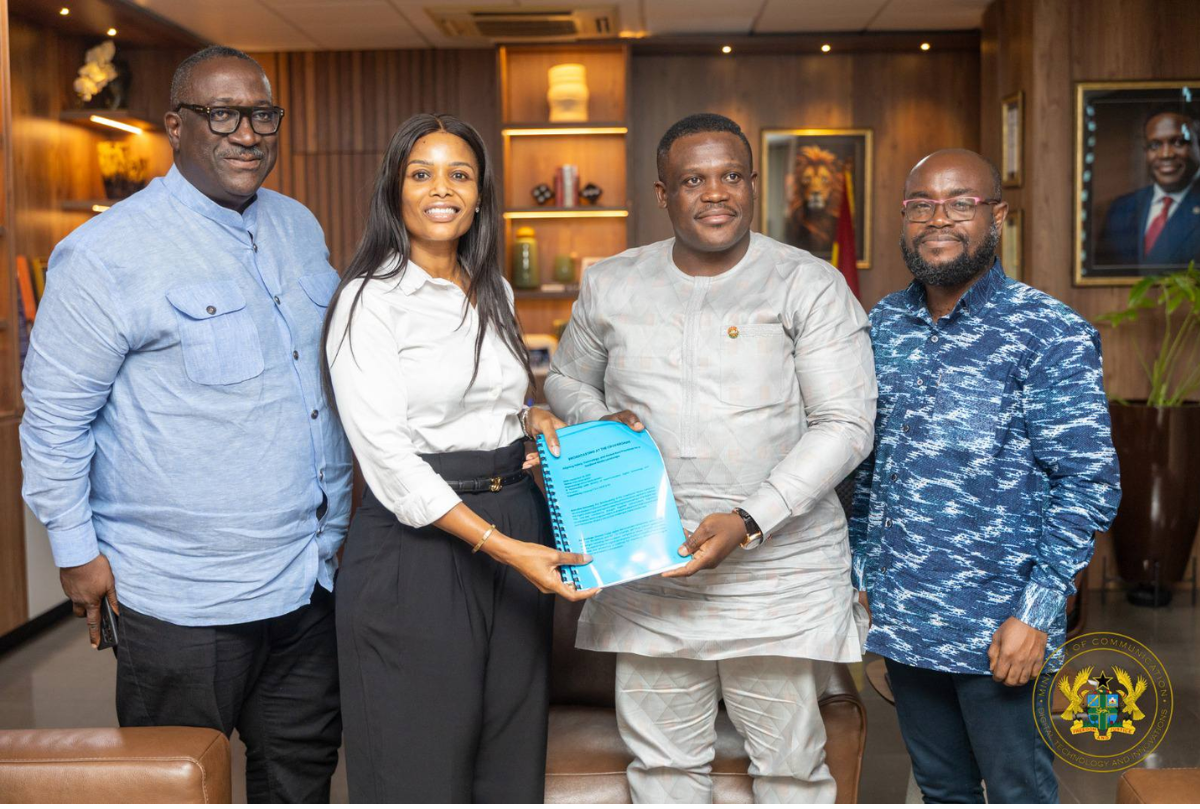The committee, set to be inaugurated by next week, will focus on enhancing media quality, improving regulatory coherence, and strengthening public trust in the country’s broadcasting sector.

The Ministry of Communication, Digital Technology, and Innovations has announced plans to establish a stakeholder committee tasked with developing a comprehensive roadmap for broadcasting reforms in Ghana. The committee, set to be inaugurated by next week, will focus on enhancing media quality, improving regulatory coherence, and strengthening public trust in the country’s broadcasting sector.
The decision was revealed by Hon. Samuel Nartey George, Minister of Communication, Digital Technology, and Innovations, during a meeting with a delegation from the Africa Media Bureau, organizers of the Broadcast at the Crossroads Forum. The bureau presented the Minister with a detailed report summarizing key findings and policy recommendations from the forum, which addressed challenges facing the media and broadcasting ecosystem in Ghana.
The upcoming committee will collaborate closely with key regulatory institutions, including the National Media Commission (NMC) and the National Communications Authority (NCA). Its mandate will include evaluating existing frameworks and developing strategies to promote professionalism, credibility, and ethical standards within the broadcasting industry.
A major focus of the committee’s work will be to provide policy guidance for the Broadcasting Bill, which is currently under review. The team will assess two main reform options — consolidating the NMC and NCA under a unified regulatory structure, or adopting a “converged regulation” model that enhances cooperation between the two entities while preserving their independence.
The Ministry emphasized that these reforms aim to balance media freedom with accountability, ensuring that broadcasting remains a pillar of Ghana’s democracy while adapting to new challenges presented by digital transformation and social media proliferation.
The committee will be given 30 days to conduct consultations with stakeholders across the media landscape, including journalists, broadcasters, civil society groups, and academic institutions, before submitting its recommendations. The process is expected to produce a framework that strengthens policy coherence, reinforces ethical journalism, and promotes innovation within the broadcasting sector.
This initiative represents a pivotal step toward redefining Ghana’s media environment amid growing scrutiny of both traditional and digital platforms. By establishing a participatory reform process, the Ministry seeks to ensure that Ghana’s broadcasting landscape continues to uphold freedom of expression while maintaining professional standards and public confidence.
